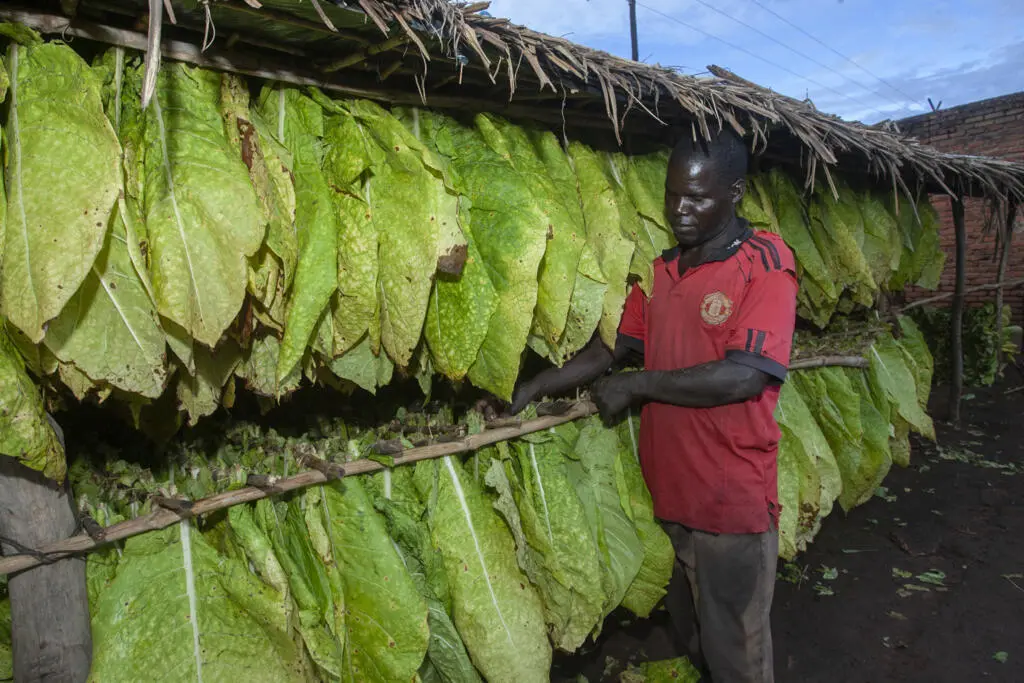Malawi, one of the world’s poorest nations and the leading producer of burley tobacco, has seen its economy heavily reliant on the crop, which accounts for over 70% of export income, per government statistics. However, global anti-smoking campaigns have driven a sharp decline in demand, reducing earnings from $237.9 million in 2020 to $173.5 million in 2021, according to the Tobacco Commission. “The main challenge we face as farmers is the issue of low pricing, which is really killing us,” said Chikumbutso Chekeni, a 22-year tobacco farmer in Nambuma, 35 km northwest of Lilongwe. Low prices and volumes in 2022 forced the Tobacco Commission to limit auctions to three days a week, with sales lasting just an hour, signaling a “bleak” future for the crop, as grower Yona Mkandawire noted.
Government’s Stance and Economic Challenges
Despite the decline, the Tobacco Commission, led by CEO Joseph Chidanti Malunga, insists on tobacco’s role as a “strategic crop” for foreign currency, stating, “We cannot abandon this no matter how.” The 2022 harvest fell 50 million kg short of buyer demand, and prices dropped over 20% from the previous year, per local media. Malawi’s economic dependence on tobacco, coupled with challenges like deforestation (26% attributed to tobacco production) and farmer debt traps, as highlighted in a 2017 PMC study, underscores the need for diversification. The government’s National Agriculture Policy (2016) advocates for high-value crops like soybeans and cannabis, but entrenched tobacco interests have slowed progress.
Cannabis as a New Frontier
In February 2020, Malawi legalized cannabis farming for medicinal and industrial use, sparking hope among farmers like Falice Nkhoma of the Tilitonse Cooperative for Cannabis Growers. “I have been growing burley tobacco since 2014… but with very little benefit because the prices were always low,” Nkhoma said, excited about cannabis’s potential for “good returns.” Known as “Malawi Gold,” the country’s cannabis is among the world’s finest sativas, per a 2011 World Bank report. Cannabis matures in just three months, offering a faster path to foreign exchange, as noted by Betchani Tchereni, an economics professor at the Malawi University of Business and Applied Sciences: “If it’s cannabis, then let’s concentrate on cannabis.”
Barriers to Cannabis Adoption
Despite its promise, transitioning to cannabis faces hurdles. High licensing fees—$10,000 per collective of about 30 farmers—pose a barrier for smallholders, prompting calls to ease regulations. “Licences can’t be this expensive,” Tchereni argued. A 2023 BBC report highlighted failures by companies like the United States Cannabis Association-Malawi (USCA), which left farmers like Ms. Chilembwe without promised seeds or training after hefty payments. Only one of four licensed cannabis companies operates commercially, per the Cannabis Regulatory Authority (CRA), underscoring the industry’s nascent stage and need for robust infrastructure and investment.
Broader Implications and Future Outlook
The shift to cannabis aligns with Malawi’s need to diversify its economy, as emphasized in the 2017 Malawi Growth and Development Strategy III, which promotes crops like sugarcane and soybeans. However, challenges like farmer debt, limited markets for alternatives, and environmental concerns from past cannabis cultivation in remote areas persist, per a 2020 PMC study. Success stories like Invegrow, which employs hundreds and processes hemp products, show potential, but scaling requires government support and foreign investment. As of August 2025, with tobacco earnings continuing to decline, cannabis offers a lifeline for farmers, but only if licensing costs drop and reliable markets emerge, ensuring Malawi’s “Green Gold” is replaced by “Malawi Gold.”






